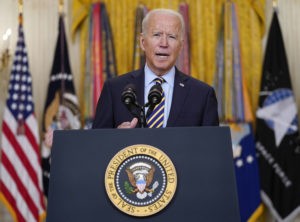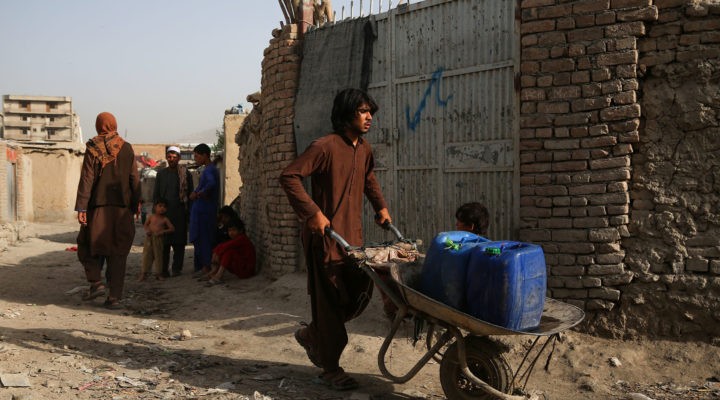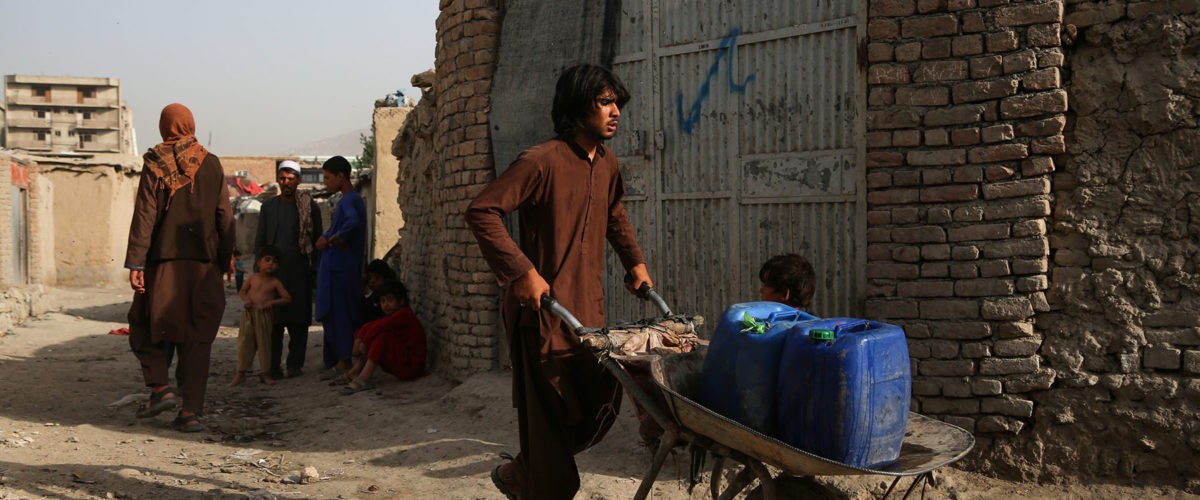The plan to withdraw all American forces from Afghanistan by Sept. 11 has become increasingly problematic for the Biden administration, which is faced not only with gradually and safely returning military personnel to the U.S. but also grappling with the looming humanitarian and religious freedom crises many predict will happen as a result of the drawdown.
Experts describe a range of potential human rights catastrophes in store for Afghans, from the oppression of nationals who aided U.S. and NATO forces, to the oppression of women and girls and to the already worsening treatment of religious minorities by Muslim fundamentalist groups.
The White House has responded that it plans to address these challenges through diplomacy and aid, and in some cases with immediate action. President Biden announced that Afghans who worked with Western militaries will be evacuated beginning later this month.
But some observers say indigenous Hindus, Sikhs and other religious minorities aren’t getting the international attention they need as they face increasingly powerful and aggressive enemies, including the Taliban and the Islamic State.

Michael Kugelman
“The Biden administration recognizes the huge risks to human rights and minority rights post-withdrawal, but it’s so focused on the withdrawal right now, and will continue to be over the next few months and the next few weeks, that it really hasn’t thought things through in terms of how to try to safeguard those rights,” said Michael Kugelman, deputy director of the Asia program at the Wilson Center in Washington, D.C. He spoke during an online discussion on Afghan religious minorities hosted by the U.S. Commission on International Religious Freedom.
The thorny problem of how to extract U.S. forces from Afghanistan after 20 years on the ground there has flummoxed previous U.S. administrations as well. The current and perhaps final drawdown was agreed to by then-President Donald Trump, and current President Joe Biden agreed to keep the plan in place, although slowed down a bit.
And the problems of religious and gender persecution in the region are not new, either.

Jagbir Jhutti-Johal
Faith minorities in Afghanistan have been targeted for persecution since the 1970s, when the Soviet invasion sparked the rise of the fundamentalist Muslim mujahadeen movement, said Jagbir Jhutti-Johal, senior lecturer in Sikh studies at the University of Birmingham, England, a member on the UK Freedom of Religion or Belief Forum.
Minority religious communities in Taliban- and Islamic State-controlled areas for years have faced kidnapping, expulsion, forced conversions, murder and special taxes for being non-Muslims, she said. “Attacks on religious minority communities are part of the strategy to weaken and destroy the very religious and cultural fabric of these communities and ultimately erase any evidence of their long history and existence in Afghanistan.”
Women and girls also are facing more persecution in Afghanistan, Jhutti-Johal said. “This is only getting worse as the withdrawal of American troops draws closer and closer.”

Frederick A. Davie
Commission member Fred Davie said USCIRF has recommended that religious freedom be included as a topic in peace negotiations between the current Afghan government and the Taliban and that the U.S. Congress designate funds dedicated to promoting and protecting religious freedom in Afghanistan because the persecuted have nowhere to go.
Commission Chair Nadine Maenza said religious minorities have been decimated already and must not be forgotten. “As we approach exit of U.S. troops, we should consider the suffering religious minorities endure under the Taliban.”
In remarks at the White House on July 8, Biden promised Afghans will not be lost in the shuffle.
“We will continue to provide civilian and humanitarian assistance, including speaking out for the rights of women and girls. I intend to maintain our diplomatic presence in Afghanistan, and we are coordinating closely with our international partners in order to continue to secure the international airport. And we’re going to engage in a determined diplomacy to pursue peace and a peace agreement that will end this senseless violence.”

President Joe Biden speaks about the American troop withdrawal from Afghanistan, in the East Room of the White House, Thursday, July 8, 2021, in Washington. (AP Photo/Evan Vucci)
Biden said the U.S. will work with other nations in the region to seek peace in Afghanistan, and he urged those countries to step up their efforts.
But without a presence on the ground in Afghanistan, those goals will be difficult to accomplish, leaving the U.S. to rely on the counterterrorism forces it plans to station in some neighboring countries to protect the persecuted, Kugelman said. “The U.S. will continue to target the groups, or at least some of the groups, that terrorize religious minorities in Afghanistan. But its capacity to do this will be significantly degraded.”
There is praise in the refugee ministry community for Biden’s decision to increase the Special Immigrant Visa program to evacuate Afghans who had served NATO military forces as interpreters, translators and in other capacities during the nearly 20-year war. CBS reported that 2,500 evacuees already are headed to a Virginia military base to finish processing their applications.
But there also is caution and urgency.
According to the International Rescue Committee, the visa program “has been plagued by backlogs for more than a decade. Only 16,000 Afghan Special Immigrant Visas have been issued since 2014 despite the availability of 26,500 total authorized visas during that time. There are more than 18,000 applications in the current pipeline, impacting a potential total of 53,000 individuals including family members.”

Krish O’Mara Vignarajah
Krish O’Mara Vignarajah, president and CEO of Lutheran Immigration and Refugee Service, said in a statement that the administration’s efforts are a vital first step but concerns remain about the countries that will accept the Afghan refugees.
“Unfortunately, there are still far too many questions left unanswered, including who exactly and how many people are eligible for evacuation,” she said. “With partners estimating that 49% of those at risk reside outside of Kabul, how will those outside the capital access safety? And to what countries will they be evacuated? We have serious concerns about the protection of our allies’ human rights in countries that have been rumored as potential partners in this effort.”
Others expressed concern about the pace of the evacuations.
“It’s good that the administration understands the urgency for our Afghan allies. Every day is critical, and lives are on the line,” said Ali Noorani, president of the National Immigration Forum. “Every day evacuation is delayed is another day that the Taliban could come knocking.”
Related articles:
Reflecting on the effects of 9/11 and the disarray of America foreign policy | Opinion by David Gushee
In Lesbos refugee camp, first came the fire, then came the Neo-Nazis | Opinion by Olivia Haynes


